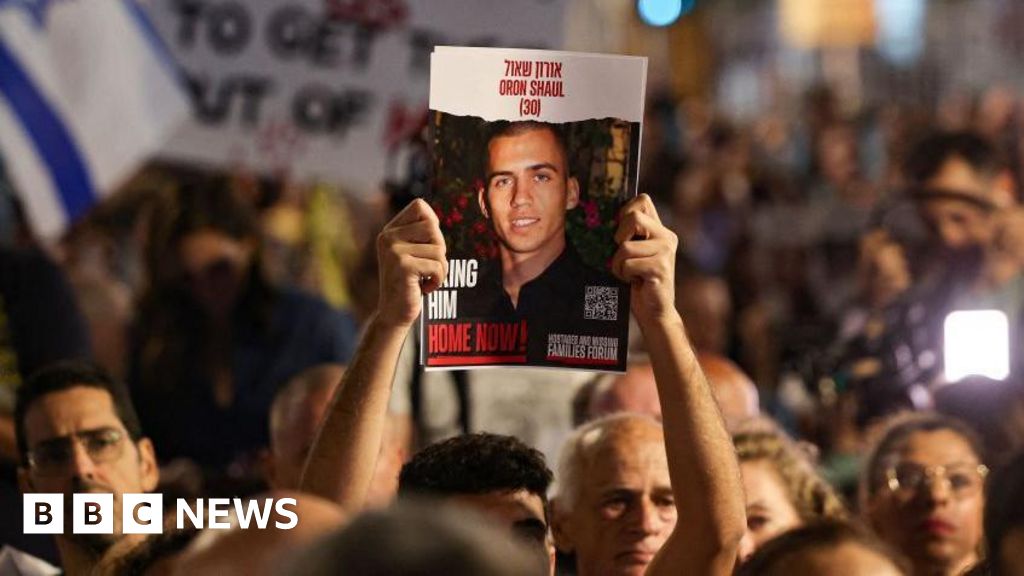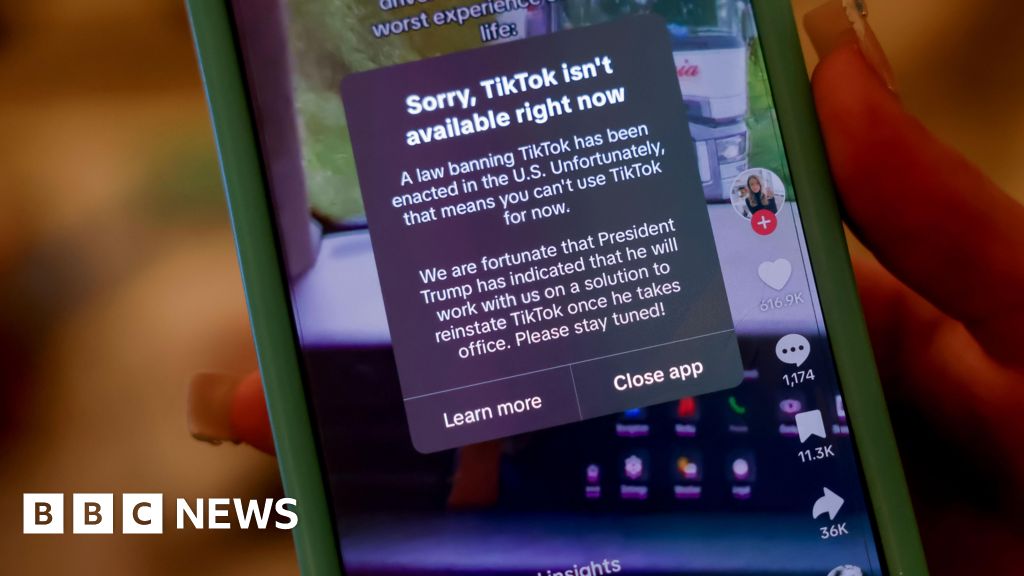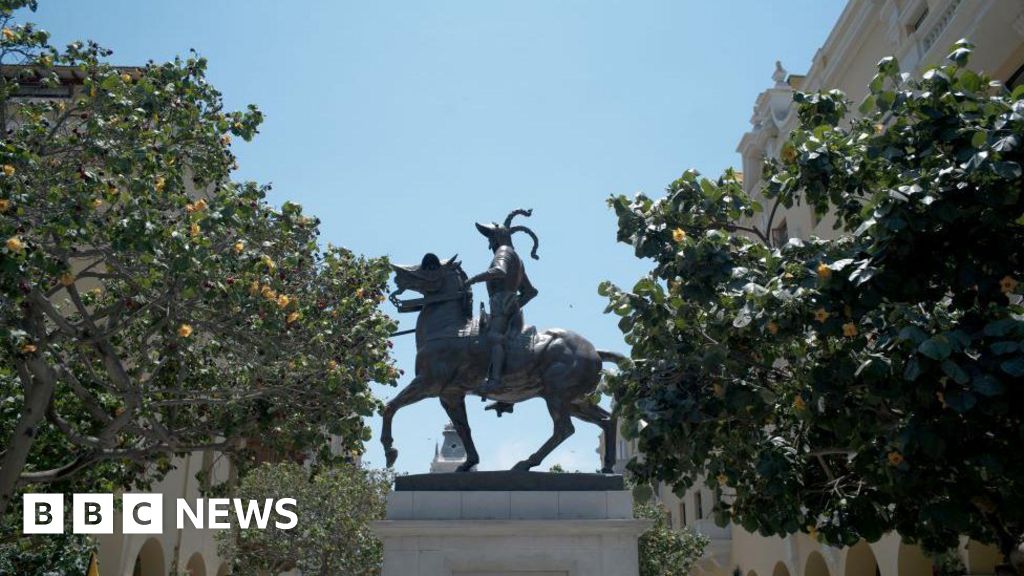ARTICLE AD BOX
After years of having her Jewishness questioned because of her blackness, Nadine Batchelor-Hunt travelled to Israel to meet the Ethiopian Jewish minority, for whom being both black and Jewish is the norm.
Being a black Jew in the UK can be hard. British Jewry is overwhelmingly white - so when someone like me walks into a Jewish space here they stand out. And when you tell fellow black people you're Jewish, you're in a tiny minority that most people don't even know exists. It creates a feeling of being both hyper-visible, but also constantly erased, almost as though being both black and Jewish isn't allowed.
I am of Jamaican and English heritage. While I have Jewish ancestry on my father's Jamaican side, I was not born Jewish, but chose the faith.
I grew up in a secular household in Birmingham, and it was only when I went to Cambridge University and met Jewish people that I started to connect with my roots. Eventually I went through a conversion process and have been a practising Jew. There are struggles which accompany someone with my identity - such as racism, rejection and anti-Semitism (something which led to a Twitter row with British black rapper Wiley over his anti-Jewish posts) - but I also have a deep sense of pride in the path I have chosen.
A need to explore my unusual position in society was given impetus by the Black Lives Matter movement, which triggered widespread conversations about racism, including within the British Jewish community. It set me on a journey which took me to Israel, home to Jews of every origin, including the largest group of black Jews in the world, those from Ethiopia.
For them blackness and Jewishness have never been in opposition, and I hoped they could help me understand what it means to straddle both worlds.
Who are Israel's Ethiopian Jews?
- Israel's Ethiopian Jewish community, also known as Beta Israel, practises an ancient and unique form of Judaism
- A series of secret military operations in the 1980s and 1990s transported more than 28,000 Ethiopian Jews to Israel
- Thousands of those refugees walked for many weeks to reach camps in Sudan - some 1,500 died on the journey
- Since 2015, some 4,500 relatives of those already there have been flown to Israel after waiting in transit camps in Ethiopia for years
Before they arrived as part of secret operations in the 1980s, many Ethiopian Jews assumed all Jewish people were black.
"People were so innocent and so naive about what it means to put everything behind you," Pnina Agenyahu, who landed in Israel as a three-year-old, told me. "You have an image in your mind of arriving in Jerusalem, the Holy Land, a land of honey, milk and gold, where everyone is Jewish, where everyone is a black Jew."
Image source, Getty Images
Image caption,Ethiopian Jews arrive at Ben Gurion airport in Tel Aviv, Israel on December 01, 1990
For the Ethiopian Jews, to begin with, adjusting to life in a non-black society was a culture shock, as it was for Israelis who were not expecting them. The community underwent radical change, from being a Jewish minority in a black country to being a black minority in a Jewish country.
While my experiences of being a black Jew and having to prove my Jewishness to other people have manifested themselves differently to that of Ethiopian Jews, the sense of alienation and feeling the need to provide evidence of Judaism is something I can relate to.
There are approximately 155,000 Ethiopian Jews living in Israel today - less than 2% of the country's population.
"When you get to understand you are the minority, it's hard," says Pnina. "I always say to my friends and my colleagues, 'You can't really understand what it's like to be a minority from another minority, you can't.'"
Pnina Agenyahu and Nadine Batchelor-Hunt
I had my own deeply personal and spiritual questions and making a radio documentary about it triggered some conflicting emotions. On the one hand, it was exciting to meet so many other black Jews and to hear their stories. On the other, I also felt somewhat out of place, because my religious and cultural practices are strongly Ashkenazi, meaning they follow the customs of Jews of Eastern European descent. These are radically different from those of the black Jews I was mingling with, whose form of Judaism had developed in isolation from the rest of the Jewish world.
The festival of Sigd, for example, which I celebrated with them in Jerusalem, is a uniquely Ethiopian Jewish holiday and alien to me, even down to the language used for praying. I pray in Hebrew while Ethiopian Jews pray in Geez, an ancient Ethiopic language.
Image source, Getty Images
Image caption,Israeli religious leaders (Kessim) of the Ethiopian Jewish community recite prayers during the Sigd holiday, marking the desire to "return to Jerusalem"
Although many Ethiopian Jews expressed the hope that it will eventually be embraced as a festival by broader Jewry, it was a reminder that there are still some profound differences between Jewish communities themselves.
However, I also heard about depressingly familiar similarities. Being black in Israel, like in the UK, can mean discrimination, mistreatment, and even police brutality.
Although Ethiopian Jews have excelled in all walks of life, they have also suffered as a minority.
In 2019, there were violent protests across the country, after a young unarmed Ethiopian man called Solomon Teka was killed by an off-duty policeman. The officer is currently on trial accused of negligent homicide.
They have also faced prejudice from landlords, and in the 1990s the government was even secretly throwing away blood donated by Ethiopian Israelis.
"I think that was the time that the Ethiopian community understood that the Israeli community doesn't see us as equal," the Ethiopian Jewish lawyer and activist Roni Malkai tells me. But they are fighting for acceptance. "We will fight because we want to live in Israel. Nobody needs to treat us differently," she says.
Lawyer and activist Roni Malkai with Nadine
Someone who has championed efforts to narrow the gaps between white and black Jews in Israel is Dani Limor, a former Mossad commander who led the undercover operation which first brought Ethiopian Jews to Israel in large numbers. I joined him and his wife for Sabbath dinner at his home, where he was also hosting Ora Yochanan, a black Jewish woman from the Igbo ethnic group in Nigeria.
"We need to learn to be more tolerant of each other," Dani said. "Jewish history is full of narrative regarding parts of its people - tribes, survivors of expulsion, pogroms, and forced conversion that disappeared and reappeared centuries later having adopted customs, clothing, languages and sometimes physical appearance that they acquired during their exile.
"Jewish identity is not defined by external looks, language or which foods we eat, but by a common faith and values."
Even though being black doesn't make you less Jewish, my experience of being around a community of Jewish people who are also black has reaffirmed that. Jewish history is part of Black history and Black history is part of Jewish history.
Roni Malkai put why being black and Jewish is special to her in a way I hadn't thought of before.
"I'm always saying my colour is my X-factor and people are always looking at me [quizzically]," she told me. "But think about it, when you come into a room you're so different from the 20 other people there - so you have this X-factor and you can take this colour and you can be proud of it."
Nadine Batchelor-Hunt is a journalist, broadcaster, and political correspondent at Yahoo News UK
Photographs by Nadine Batchelor-Hunt and Candace Wilson

 3 years ago
82
3 years ago
82








 English (US) ·
English (US) ·